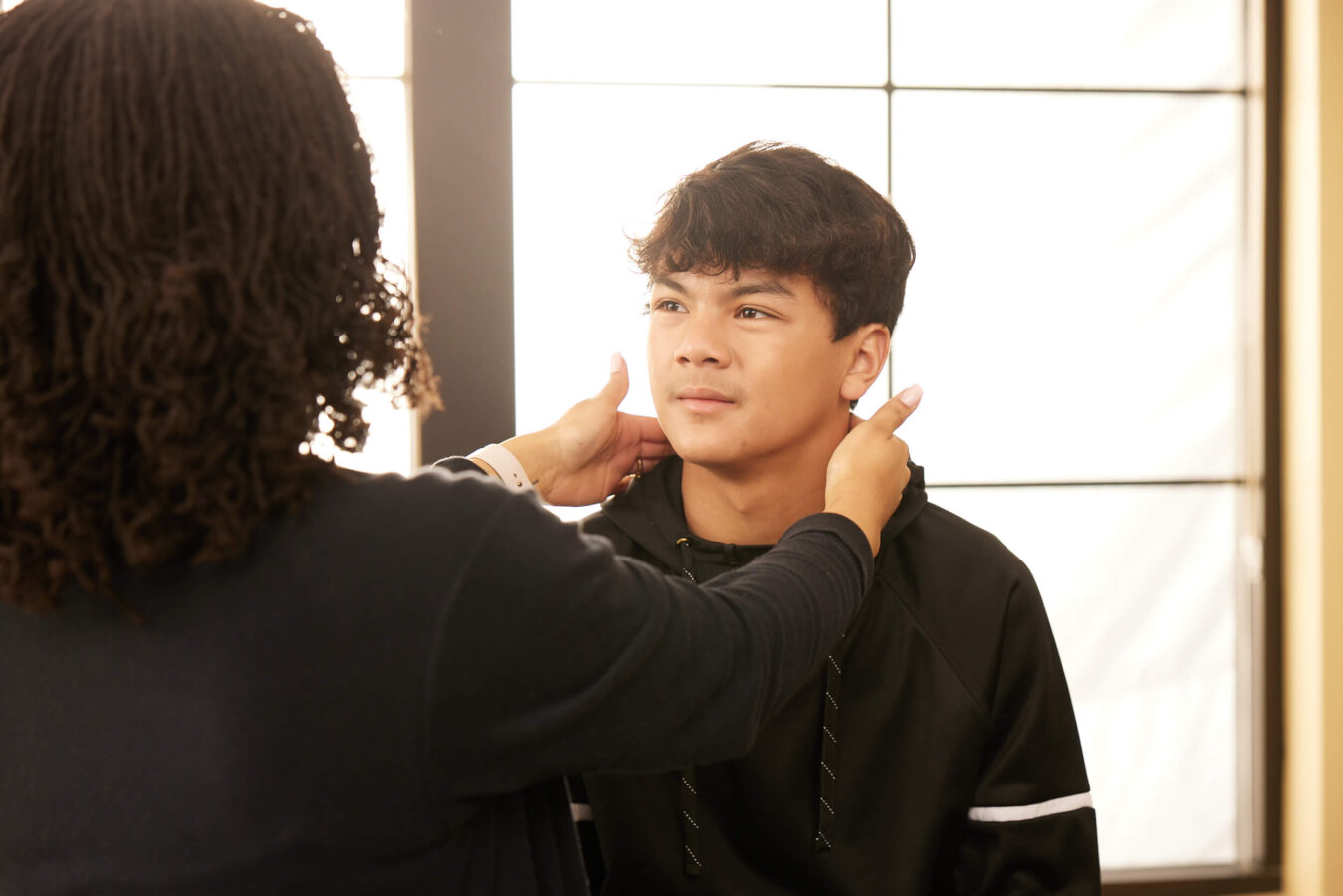
Medically reviewed by Domonique Martin
Upwards of 3.8 million sports and recreation-related concussions occur every year in the United States. At least half a million of these cases involve children, according to the Centers for Disease Control and Prevention (CDC). And while a concussion is considered a “mild” brain injury, symptoms can still be severe and have a significant impact on a person’s quality of life.
Physical therapy for concussions cannot reverse the chemical changes that occur with a brain injury. However, it can alleviate symptoms, help patients return to normal activities earlier, and lower the risk of long-term impairment.
A concussion is a type of traumatic brain injury (TBI) that is caused by a blow, bump, or hit to the head, or by trauma to the body that causes the head and brain to move rapidly back and forth. That sudden motion forces the brain against the skull, which can damage and stretch brain cells.
This damage to brain tissue causes unpredictable chemical and metabolic changes that affect how the brain and body function. As the body’s main control center, damage to the brain can manifest as short- or long-term physical, cognitive, or behavioral symptoms.
Concussions commonly happen from falls, car accidents, and sports injuries. Someone who has experienced one concussion may have a higher risk of being diagnosed with a second, more serious brain injury in the future.
No two brain injuries are alike. Concussion symptoms vary from patient to patient, depending on the nature and extent of brain trauma.
Concussion signs and symptoms may include:
Concussion recovery focuses on allowing the brain to heal, followed by rehabilitation in areas where deficits have occurred. The process can take up to two weeks for adults, and up to four weeks for children. Recovery for severe TBIs can take several years.
Post-concussion syndrome (PCS) is the persistence of concussion symptoms beyond the normal, expected course of recovery. Patients with PCS often have problems with sleep as well as anxiety, depression, and irritability.
Physical symptoms like neck pain, headache, and light and sound sensitivity are also common with PCS. It is important to know the signs of PCS and take steps to treat them to keep a brain injury from negatively impacting the injured person’s physical and emotional well-being.
Second impact syndrome (SIS) or repetitive head injury syndrome occurs when a person suffers a second head injury while they are recovering from an initial head injury. While this condition is rare, it is serious, nonetheless.
Prevention is the key to avoiding a secondary injury. Patients should follow the guidance of their healthcare provider and physical therapist to protect the healing brain and resume approved activities only when it is safe to do so.
Concussion care in physical therapy assesses and treats a wide range of symptoms related to brain injury. It involves a proactive approach to helping patients return to activities safely and more quickly than without physical therapy.
Physical therapy is unique in that every concussion care treatment plan is created precisely for the patient based on their symptoms, challenges, and recovery goals. Physical therapists understand the importance of brain rest and determine when it is safe to start physical activity—and which interventions are appropriate.
It is also beneficial to work with a physical therapist after a concussion so they can monitor your progress and look for signs of post-concussion syndrome. Therapists educate patients on practical ways to prevent second-impact injuries and provide them peace of mind knowing that when it’s time to return to their favorite sports and activities—they are ready and healthy.
If you are prescribed physical therapy for a concussion, this is a brief overview of what you can expect from your rehabilitative journey.
Concussion physical therapy begins with a thorough physical exam and assessment of your symptoms. Various tests are used to evaluate your memory, reaction time, and processing. Your physical therapist creates a concussion treatment plan based on those results.
Concussion therapy may include a combination of the following treatments and therapies:
If you or someone you care about has experienced a concussion or TBI, physical therapy can be an essential—and effective— part of the recovery process. Find a physical therapy clinic near you.
